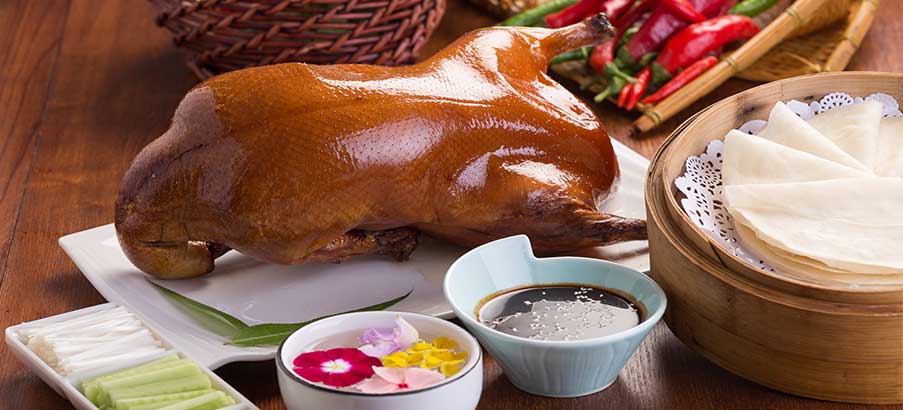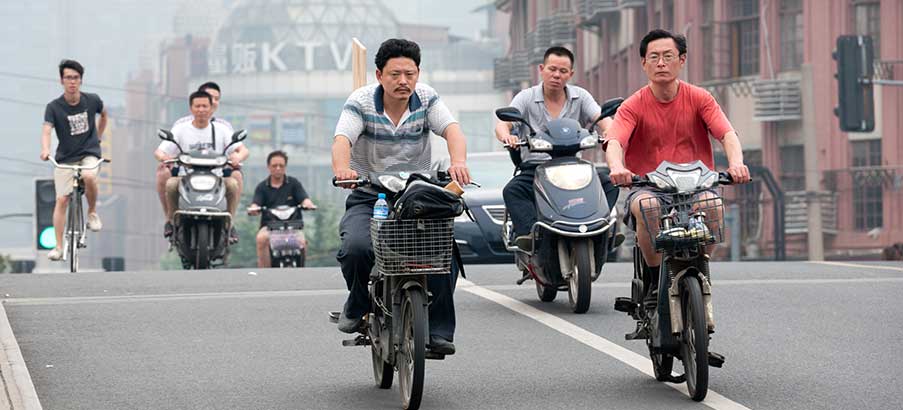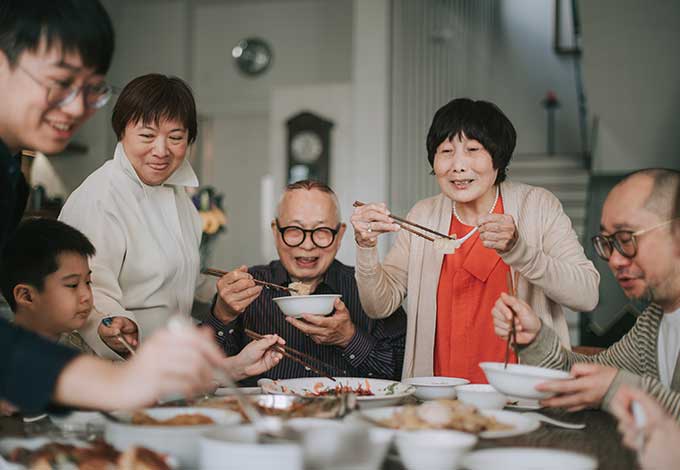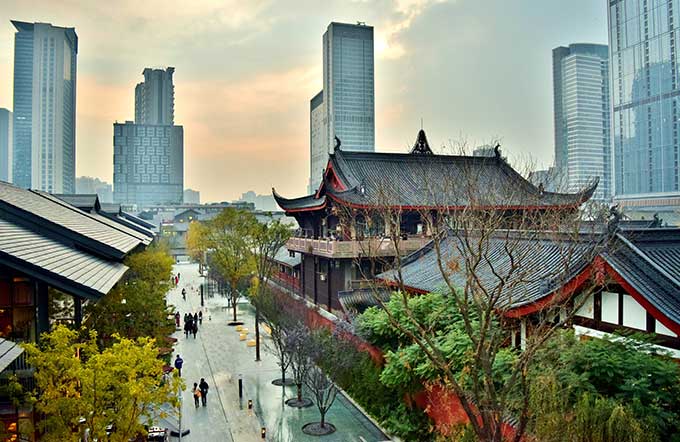1. The language barrier

Learning the basics of Mandarin is extremely helpful. Most taxi drivers and shop assistants don't speak a word of English. You can get by with just English in cities like Beijing and Shanghai, but your life will be limited: you'll need to have addresses written out in characters before you set off and likely end up eating in expensive expat-oriented restaurants.
Chinese does without many of the small 'pleases', 'thank yous', 'woulds', 'coulds' and 'mays' that English works with. Instead, it's a language of sharp, dynamic building blocks that can sound quite jaggedly in translation. Someone saying 'Come here now!' or 'Buy now!' is not necessarily being rude. Most likely they are literally translating each Chinese building block into English.
Even if you can only say a few words, the Chinese people you meet will appreciate your attempts to overcome the language barrier.
2. Chinese food

Chinese people love to eat and China boasts one of the world's greatest and most varied cuisines. Indeed, one of the great joys of any visit to China is experiencing one or more of China’s famous eight regional cuisines. You will be thrilled by the abundant delicacies it offers, like jiǎozi 饺子 (Dumplings), Běijīng kǎoyā 北京烤鸭 (Beijing duck), hóngshāoròu 红烧肉 (Red braised pork) and not to forget huǒguō 火锅 (Hot pot) just to name a few.
Eating and drinking in China can be a mind-broadening and enjoyable cultural experience. However, there are likely to be many surprises along the way. During the long development of Chinese eating culture, many practices have evolved that you may find quite different from what you are used to. Their food include many things unusual in the West, such as different types of fungi, different kinds of sea vegetables, exotic sea animals, snakes, bamboo shoots, bitter melon, giant white radishes, lotus pods and not to forget their well-known tofu.
Yes, expect surprises, from the Chinese delicacy that is chicken claw, century egg where eggs are being soaked for months in black tea, sheep penis - yes you heard that correct - (prepared on a stick and best served hot might you wonder), snake soup, to tuna eyeball and last but not least stinky tofu.
Getting acquainted to the different dining manners and etiquette will be less challenging. At a Chinese meal, dishes are served one by one in the middle of the table, and you need to pick up food from the plates and bowls shared with others seated at the table with you. After you have ordered, tea or a different drink and cold dishes will be served first. Hot dishes are then served one by one. Soup is often the last dish of a meal, followed by fruit for dessert.
Indeed, expect surprises, but no doubt you are going to be thrilled by Chinese food!
3. Personal space

If you come from a country where queuing is habitual and bodily contact with strangers uncommon, the surging hordes to be found in China's huge cities – many cities that most Westerners have never heard of boast larger populations than London, Paris or New York – can prove a bit intimidating. Pushing and barging is routine, be it getting onto public transport or into an attraction, but, importantly, no one takes it personally.
Personal observations and questions are not uncommon in Chinese culture, be that an observation on one's weight, one's single status, one's salary or enquiries about where you are going today. As a general rule, he does not intend to insult. They are just being friendly.
There are still parts of rural China where being a laowai 老外 (foreigner) is unusual and he can expect to be stared at. In China, as in much of Asia, staring at people is not rude. It's just a way of expressing curiosity. That means that you, in turn, can stare back as much as you would like.
4. Traffic and traffic rules

Scooters are a great way for the locals to get around China's cities, and you'll find them everywhere – even creeping up behind you, silent but deadly, on the sidewalk. The approach is typically inaudible and they can travel surprisingly fast, so it's good to keep an eye open.
When crossing a road at a marked crossing, be aware that vehicles are often cleared green to turn across that crossing at the same time that pedestrians cross on their own green light. While most Chinese drivers will demonstrate some give and take, a pedestrian intersection is not the merry stroll it is in the West.
5. Socializing in China

Etiquette rules aren't super-rigid in China, and there's a lot of leeway given to foreigners.
Splitting the bill isn't common, you might see two people physically jostling to determine who picks it up. Chinese friends may insist on paying for you, yet in other cases, you may find that as the foreigner, therefore perceived as wealthy, you're expected to pay.
At Chinese banquets, fiery white liquor called báijiǔ 白酒 (baijiu) is often served as small shots. Although many expats find the substance undrinkable, when someone locks eyes with you and shouts gānbēi 干杯 (dry the glass), you're expected to drink!
People pass out business cards all the time, even in social situations, so be sure to stock up on name cards before you go, or get some printed cheaply when you arrive. When someone offers you his or her card, accept it with both hands, study it for a short while, make a compliment about it, and then offer yours.
Indeed, surrounded by a different language and culture, you will experience times when you don't know what's going on. But not to worry, our Culture Check and Culture Complete courses will make you familiar with China's most important cultural phenomena.
Give China a bit of time, and you will be surprised by how much you will love her!
China is different! Every foreigner will agree on that. Why doesn't a Chinese 'yes' mean the same as the English 'yes'? How should you take a compliment like 'your face is soooo small' or 'you have straight legs'? Why didn't we still come to the point after so many meetings and do I really have to join the KTV party?
This practical course checks out China for you by answering your most urgent questions. It will help you to live comfortably through your first period in China by softening the 'culture shock' that most people experience when they first come to China. Topics treated are:
Food & Dinner;
Meetings & Etiquette;
Physical & Social distance;
Guanxi & Mianzi;
It supplies you with some indispensable Do's and Don'ts for your daily life and your business career.

The Culture Complete course provides you not only with the 'how' but also with the 'why' of Chinese culture and habits. And understanding where it all comes from makes it so much easier to accept and to apply it yourself correctly. After this course you will understand and know how to:
Deal with business affairs in China;
Effectively work with your Chinese colleagues;
Live a pleasant and 'Chinese' life in China!
This fascinating course reveals and explains the, most times invisible, roots of Chinese and shows how strongly this source still steers the believe and behaviour of Chinese people.

The course starts where it all begun, the Agricultural Civilisation alongside the Yellow River some 2.000 BC. It then tracks China's cultural path through history from Lao-tse and Confucius, to the highly influential Qin and Han dynasties, next to Mao Zedong and ending in today's China of Xi Ji Ping. It touches upon other important cultural aspects as Yin and Yang, the 5 Elements, Fengshui and (Martial) Arts.
Now that you understand the culture's source, this course explains to you, the often spoken of but seldom well understood, Guanxi and Mianzi, as well as Collectivism versus Individualism. It does so with an abundance of examples of daily live, clearly illustrating how deeply these phenomena still are embedded in everyday life.
Finally, and most of all, the course supplies you with indispensable Do's and Don'ts for your daily life and your business career.
Next are the highlights being treated:
Ancient Agricultural Civilization
Laoism, Legalism, Confucianism and Buddhism
Philosophy versus Religion
Law & Social rules: the impact of Confucianism
Guanxi & Mianzi
Collectivism versus Individualism
Indispensable Do's and Don'ts!

